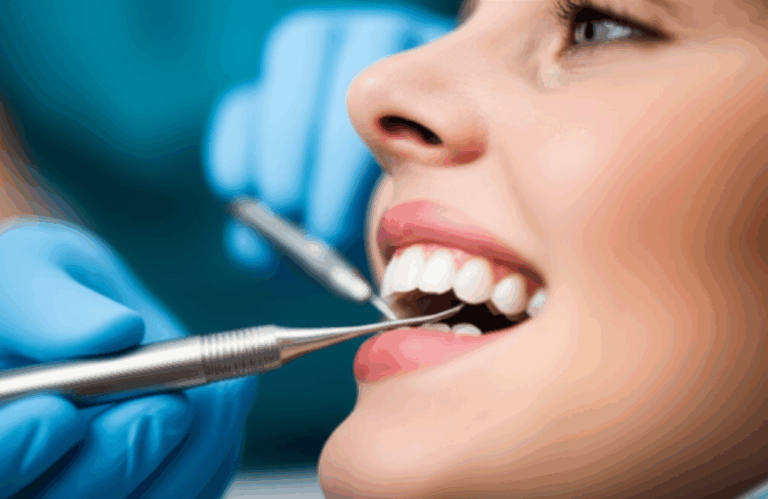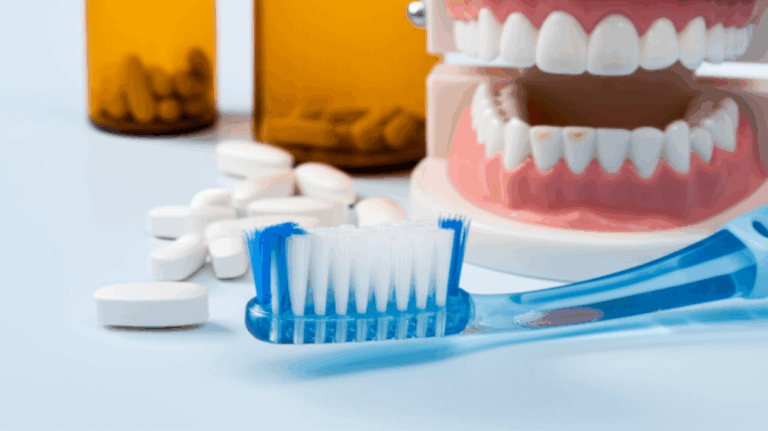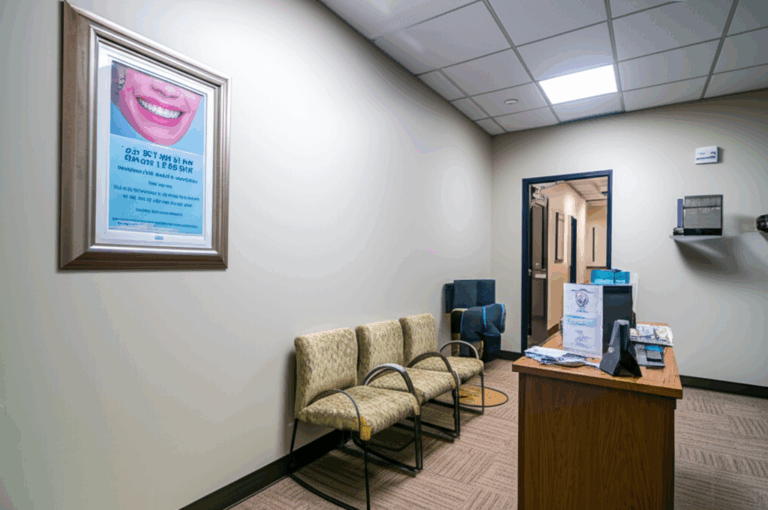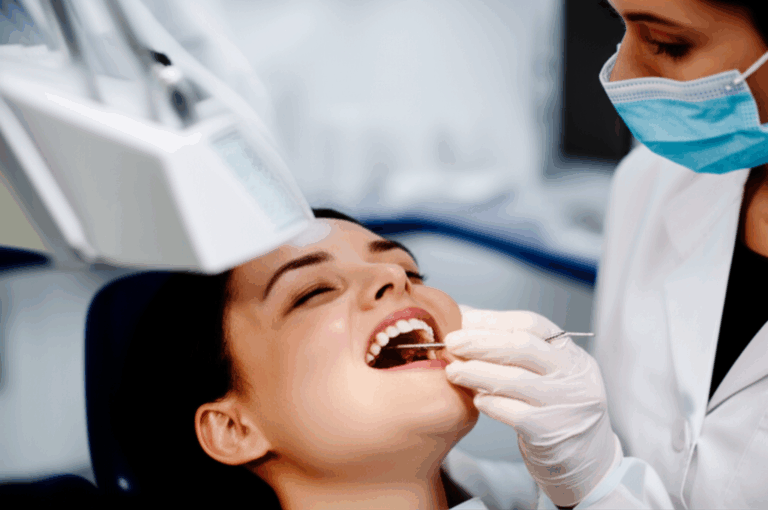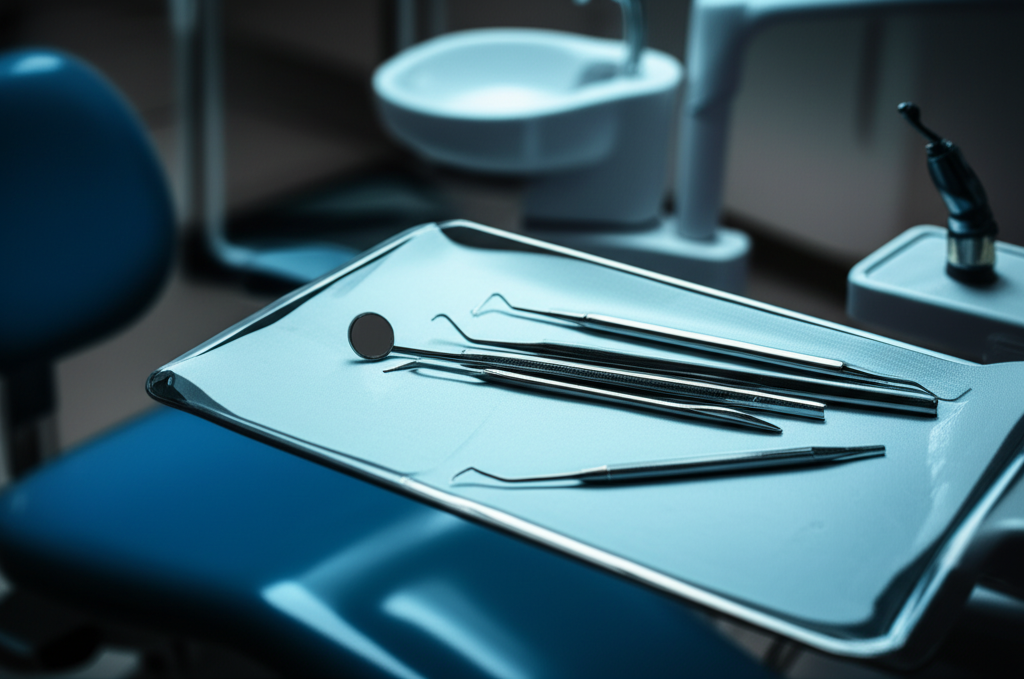
Can Vitamin D Deficiency Cause Dental Problems? The Crucial Link to Oral Health
If you think keeping your teeth healthy just means brushing and flossing, think again. Your body is like a team, and every team member counts—even vitamins. In this article, you’ll find out exactly why Vitamin D is a secret hero for your teeth and gums. You’ll learn easy ways to notice problems, simple tips for prevention, and how to work with your doctor or dentist to keep your whole smile healthy. If you care about your teeth, this one’s for you!
Table of Contents
- What Does Vitamin D Really Do for Your Teeth?
- How Can Vitamin D Deficiency Harm Your Mouth?
- What Dental Problems Are Linked to Low Vitamin D?
- How Does Vitamin D Deficiency Cause These Problems?
- What Signs Should You Watch For in Your Mouth?
- Who Is at Risk for Vitamin D Deficiency?
- How Can You Boost Your Vitamin D Levels?
- What Foods Should You Eat for Strong Teeth?
- Why See Your Dentist and Doctor?
- How iStar Dental Lab Supports Healthy Smiles
- FAQs about Vitamin D and Dental Health
- Summary: Top Things to Remember
What Does Vitamin D Really Do for Your Teeth?
Let’s get right to the heart of things. You might have heard “Drink milk for strong teeth!” but the truth goes deeper—much deeper. Vitamin D is like the coach that helps your body use calcium and phosphorus. Without Vitamin D, your teeth and bones can’t lock in these minerals, sort of like trying to build a house out of sand instead of bricks. And that causes problems.
I remember learning that teeth aren’t just white things in your mouth—they’re living parts of your body, with a tough outside—enamel—and a layer underneath—dentin—that needs care all the time. Here’s how Vitamin D helps:
- Helps your body soak up calcium and phosphorus (these are the building blocks of your teeth and jawbone).
- Keeps bones strong (your jaws hold your teeth in place).
- Helps your gums by fighting off germs and swelling.
If Vitamin D isn’t around to help, trouble can show up fast.
How Can Vitamin D Deficiency Harm Your Mouth?
Think of your teeth like strong knights and Vitamin D as their armor. Without enough armor, knights get hit more easily. Same for your teeth—they get weaker, more sore, and germs can attack them easier.
Here’s the problem: If you don’t have enough Vitamin D, your teeth can’t take in the minerals they need. This causes:
- Enamel that is soft or weak and easy for acid to wear away.
- More chance for cavities (those little holes in teeth).
- Gums that can’t fight germs as well.
And that’s just the beginning. Your whole mouth loses its strong defense.
On a Personal Note: Imagine eating ice cream and suddenly feeling a sharp stinging pain. Or maybe you bite into an apple and your gum bleeds. When I was a kid, things like this happened before we found out I was low on Vitamin D. This is pretty common and it can be scary—whether you’re a kid or an adult!
What Dental Problems Are Linked to Low Vitamin D?
Let’s look at how low Vitamin D shows up in your mouth. This part isn’t to scare you—it’s to give you the truth so you can protect yourself.
1. Weaker Enamel and Dentin
When your enamel is weak, your teeth feel sore or even start to break. Enamel is your tooth’s armor—if it’s thin, there’s trouble!
2. Cavities
Not enough Vitamin D means softer teeth for bacteria like Streptococcus mutans to attack, making little holes (cavities) you can see or feel with your tongue.
3. Gum Problems (Gingivitis and Periodontitis)
Without Vitamin D, your body can’t fight off germs in your gums. Gums can turn red and puffy. Bad gum problems can make the bone around your teeth get thin and even make your teeth loose.
4. Lost Jawbone Strength
Vitamin D keeps your bones tough—including your jawbone, which holds your teeth. If the bone gets weak, your teeth might move or fall out.
5. Slow Tooth Growth and Enamel Problems in Kids
Sometimes Vitamin D problems start before birth! Babies whose moms don’t have enough Vitamin D can get teeth that come in late or have chalky white spots and weak teeth (enamel hypoplasia).
6. Higher Chance of Tooth Loss
Weak bones and gums may mean losing teeth—even if you’re brushing and flossing all the time.
7. More Mouth Infections and Redness
You guessed it—less Vitamin D means germs have an easier time, and there’s more pain and slower healing.
If you want more facts on mouth diseases, check out all this teeth information to learn more.
How Does Vitamin D Deficiency Cause These Problems?
So you’re probably asking, “Why does this all happen?” Let’s keep it simple.
Trouble with Hardening Teeth and Bones
Tooth enamel and jawbone need a steady flow of minerals—mostly calcium and phosphorus. Vitamin D lets your gut move these from what you eat into your blood, and then packs them into teeth and bones. Without enough Vitamin D, teeth get weak and a bit like chalk, while bones in your jaw lose strength too.
Weaker Germ Fighters
Vitamin D helps your mouth make special “germ fighters” that help kill bad bugs. Not enough Vitamin D means weaker protection, so bacteria have an easier time causing problems.
Swelling Out of Control
Sometimes your body goes overboard fighting germs and makes your gums extra red and puffy. Vitamin D helps tell your body to calm down. If you don’t have enough, your gums can get hurt even more.
Here’s a table that makes it easy:
| What Vitamin D Does | How It Helps Your Mouth | Without It… |
|---|---|---|
| Hardens Teeth/Bones | Tough enamel, strong jaws | Soft, weak teeth and jaws |
| Fights Germs | Fewer infections in gums | Repeated gum problems |
| Calms Swelling | Healthy, pink gums | Red, puffy gums |
What Signs Should You Watch For in Your Mouth?
Now for the useful part—what should you look for in your own mouth?
When Vitamin D is low, you might notice:
- Achy or tired jaw or face.
- Teeth that feel sore with hot, cold, or sweet things.
- Cavities showing up, even if you brush well.
- Gums that bleed, especially when flossing.
- Teeth that feel wobbly.
- Mouth sores or slow healing after dental care.
Other body signs: feeling tired, sore bones, or weak muscles.
The only sure way is a blood test called 25(OH)D from your doctor. It can tell if you have enough Vitamin D for good health.
Who Is at Risk for Vitamin D Deficiency?
Not having enough Vitamin D is actually pretty common. About one billion people worldwide don’t get enough! But some people are more at risk, such as:
- People who don’t get much sun (office workers, folks staying inside a lot).
- People with darker skin—the melanin protects skin from sun, but also slows Vitamin D making.
- Older adults (your skin makes less Vitamin D as you age).
- Folks with certain health problems, like gut or kidney issues.
- People who are overweight (Vitamin D gets stuck in body fat).
Even kids and pregnant women can get low on Vitamin D, so it’s not just adults.
How Can You Boost Your Vitamin D Levels?
Time for good news! Vitamin D is easy to get, if you know where to look. Here are three main ways:
1. Sunlight
Your body makes its own Vitamin D when your skin gets some sun—UVB rays, to be exact. Even 10–20 minutes a few times a week can help. But don’t get burned! If you’re outside longer, use sun protection.
2. Eating the Right Foods
Some foods are rich in Vitamin D, and some have it added. Here’s what to add to your grocery list:
- Fatty fish like salmon, mackerel, or sardines
- Egg yolks
- Fortified milk and orange juice
- Fortified cereals
- Cheese and yogurt
3. Supplements
If your doctor checks your blood and says you’re low, they might suggest a pill or drop. Vitamin D3 (cholecalciferol) is common. But don’t take extra unless your doctor tells you! Too much can cause new problems.
Here’s a strong tip: Vitamin D works even better when you also have enough calcium and phosphorus.
What Foods Should You Eat for Strong Teeth?
Eating for your teeth isn’t just about skipping candy or soda. Your teeth and bones need certain stuff to stay hard and healthy. Here’s a simple table:
| Food | Vitamin D Amount | Other Good Stuff |
|---|---|---|
| Fatty Fish | High | Omega-3, Phosphorus |
| Egg Yolks | Medium | Protein, Zinc |
| Fortified Milk | Medium-High | Calcium, Phosphorus |
| Fortified Cereal | Medium | Calcium, Iron |
| Cheese/Yogurt | Some | Calcium |
| Sunlight | Best “source” | (Your body makes D) |
Balanced meals, a bit of sun, and less sugar all help your teeth last a lifetime.
Why See Your Dentist and Doctor?
Wondering, “I feel fine, so why worry?” It’s because problems often start before that first sore tooth.
Dentists can spot Vitamin D trouble when you come in for a visit. They’ll look for:
- Cavities showing up again and again, even with good brushing
- Thin enamel (white spots or lines)
- Loose teeth or gums pulling away (especially in young people)
- Trouble healing after dental work
Doctors—especially if you have risk factors—can check your blood to catch problems early. Your dental team and doctor can help you set up a plan to fix things so you stay healthy and strong.
If you need dental work—like crowns, bridges, or new teeth—choosing a trusted crown and bridge lab makes sure your repairs are tough and look real.
How iStar Dental Lab Supports Healthy Smiles
Let me tell you about iStar Dental Lab. After spending years around dental offices and labs, I know how important it is to have smart teammates. iStar is a top china dental lab, serving dentists and patients all over.
They use strong materials and new technology so your crowns and bridges, or even dentures, look and feel as real as possible. That means if Vitamin D problems (or any reason) make you need a fix, iStar’s dental ceramics lab can help make things right for your smile.
Even better, their workers and dentists team up to help you smile and chew like normal—whether it’s fixing one tooth or a whole set.
So, if you need to repair what a vitamin problem has done to your smile, just remember a skilled, caring team has your back.
FAQs about Vitamin D and Dental Health
Q: Can not having enough Vitamin D really cause me to lose teeth?
Yes! Over time, low Vitamin D weakens bones and gums, making tooth loss much more likely.
Q: How can I tell if I’m low on Vitamin D?
The best way is a blood test from your doctor, especially if you have symptoms or risk factors.
Q: Do kids need to worry, or just older people?
Everyone can be at risk! Kids, adults, seniors, and even pregnant moms need good Vitamin D for strong teeth and bones.
Q: If I fix my Vitamin D problem, will my teeth get better right away?
Some problems—like white spots on teeth or bone loss—can’t be reversed. But getting enough Vitamin D helps your mouth heal and keeps new problems away.
Q: If I eat healthy, do I still need sun or pills?
Food helps, but sunshine gives most people more Vitamin D. Some people might also need pills, but only if your doctor tells you.
For more tips on keeping your teeth healthy, check out these teeth health tips.
Summary: Top Things to Remember
- Vitamin D is important! It helps build strong teeth, bones, and keeps gums healthy.
- Low Vitamin D = More mouth problems: Cavities, gum problems, weak teeth, even tooth loss.
- Look for signs: Sore teeth, bleeding gums, or lots of infections.
- Get enough: Enjoy safe sunlight, eat Vitamin D-rich foods, or use supplements if your doctor says so.
- Team up: See your dentist and doctor often for checks and advice.
- If you need repairs: Trust experienced labs like iStar to fix your smile for the long run.
Don’t let a small vitamin problem take away your smile. Knowing the facts, taking action, and having a good team on your side will keep you smiling strong for years!
References:
For more on basics to keep your teeth shiny and strong, see our dental care guide.

